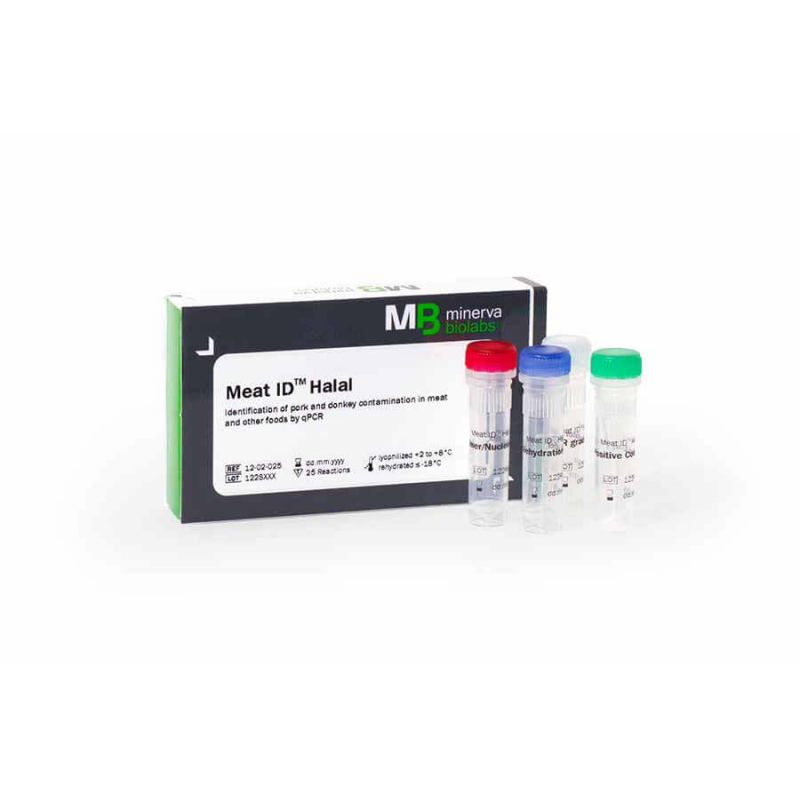



Meat ID™ Halal is a kit for the fast and reliable identification of pork and donkey in meat and other foods by qPCR.
25 tests
400,44 € bez DPH
The identification of different meats, especially in minced meat products is a serious task in food safety and from and ethical perspective, especially for Muslims. Authentication of forbidden or none declared ingredients such as pork or donkey meat is essential to ensure confidence in the supply chain and regulatory compliance.
Meat ID™ Halal is available for rapid and reliable analysis from various matrices including raw, or even highly processed and cooked meat products where the DNA may be significantly degraded. It is possible to identify relevant species down to a threshold level of 0.5% with a semi-quantitative result.
Taqman® Assay based on FAM and HEX labeled probes.
Can be used in research and industry for detection of pork and donkey in meat and other foods by qPCR. For research use only! Do not use for clinical diagnostic or testing of patient samples.
Target sequence is a mitochondrial gene (cytochrome b), which is available in multiple copies per cell, enabling successful detection of minute amounts of target DNA!
Cat. No. 12-02-025 25 tests
Cat. No. 12-02-100 100 tests
cycler based, real-time PCR
Down to a threshold level of 0.5% with a semi-quantitative result.
Primer sets, nucleotides, polymerase and internal control DNA, lyophilized, filled in a single tube. Rehydration buffer, Positive control, PCR grade water.
DNA can be extracted from sample material using DNA extraction kits e.g. ExtractNow™ DNA Mini Kit (Art.-Nr. 608-1050) or user method.
Pipette tips, 1.5 ml reaction tubes, PCR reaction tubes
qPCR cycler with FAM™ and HEX™ filter, benchtop centrifuge, racks for tubes, variable microliter pipettes
approx. 90 minutes
Components can be stored at +2 to +8 °C for at least 12 months. After rehydration reagents must be stored at -18 °C.